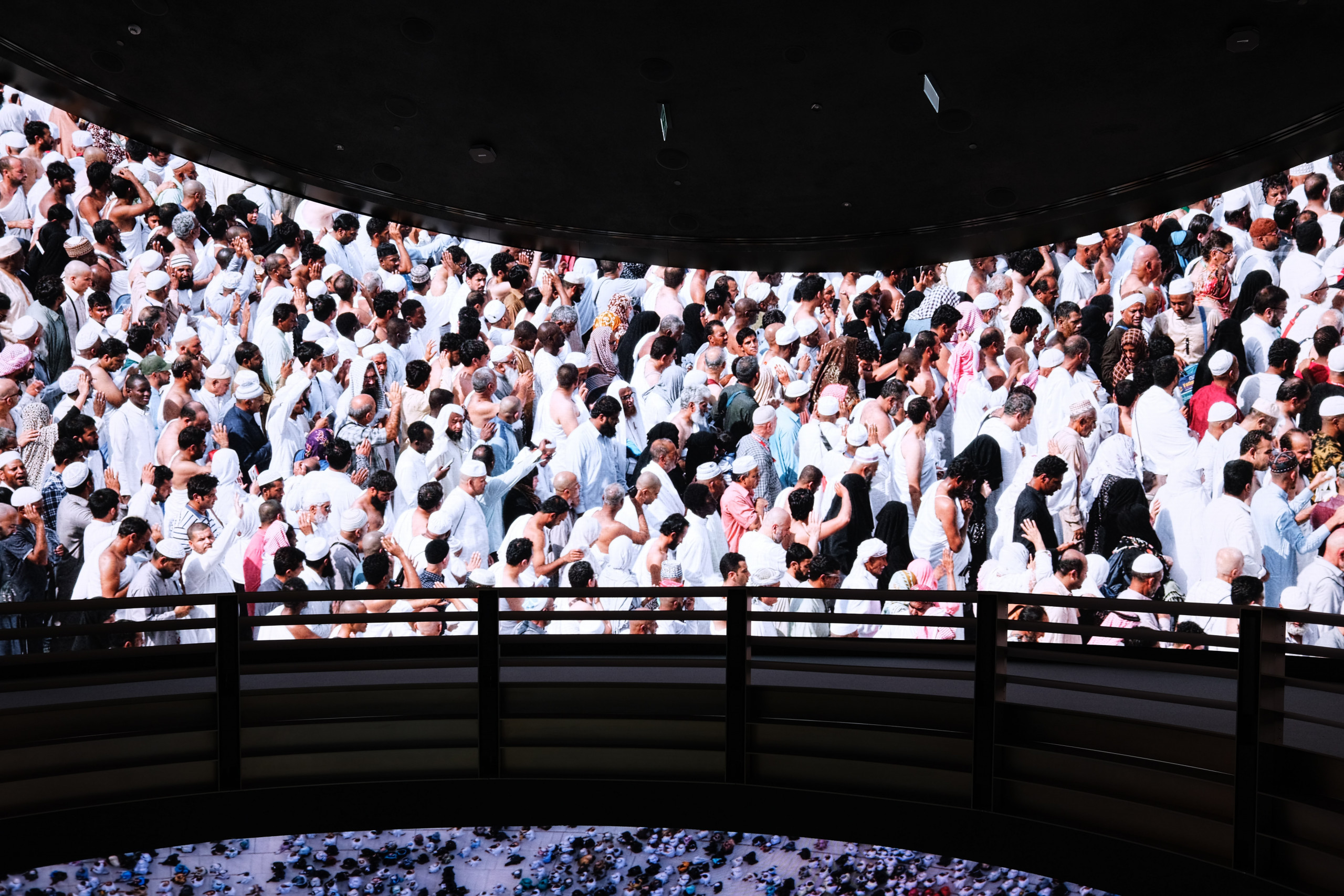[ad_1]
Muslims celebrate two Eids every year, though Eid Al Adha is known as the ‘great’ Eid.
Eid Al Adha is celebrated on the 10th day of the final month of the Islamic lunar year, to mark the annual Hajj pilgrimage – the world’s largest gathering.
As per traditions set by the Prophet Muhammad, Eid Al Adha begins with early morning prayers, in which Muslims gather in a large space to take part in congregational prayers – reflecting scenes from Mecca where pilgrims gather in prayer around the Kaaba.
Around the world, those who can afford to do so are advised to don new and/or clean clothing to reflect the festive nature of the holy day. However, among the most essential elements of Eid Al Adha – the Festival of Sacrifice – is the sacrificing of a lamb.
The sacrificial slaughter goes back to a Quranic story about Prophet Ibrahim who was asked by God to sacrifice his son Ismail as a test of faith, before being stopped at the last second.
Nowadays, the meat is used as part of a feast to mark the celebration, with the remaining meat distributed to those in need around the world.
While some donate this meat to neighbours and members of their local community, the benefits of technology today means that Muslims can pay charity to reach other parts of the world, where the sheep is slaughtered instead and distributed as food to those most in need.
The Hajj pilgrimage
While Umrah – the ‘lesser’ pilgrimage – is voluntary and can be performed at any time of the year, Hajj is an annual pilgrimage set for a specific time of the year.
Performing Hajj is mandatory for all Muslims who are financially and physically able to do so at least once in their lifetime.
Prior to the pandemic, more than 2.5 million pilgrims from around the world would visit Islam’s two holiest sites in Makkah and Madinah for the week-long pilgrimage.
The annual Hajj and the year-round Umrah pilgrimage, bring in around $12 billion a year to the Saudi kingdom, according to official data.
However, this year’s new controversial and centralised Saudi system, which scraps travel operators as middle men in the booking process, means authorities in the kingdom are set to benefit even more financially.
[ad_2]
Source link

















Leave a Reply